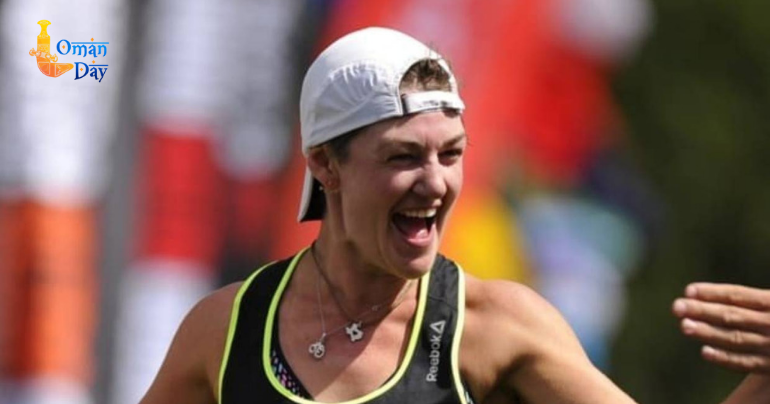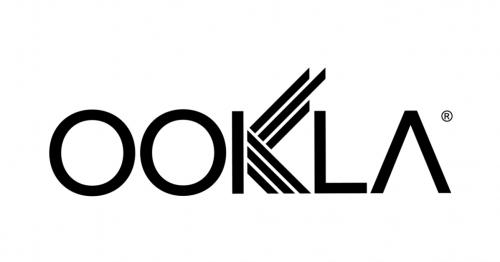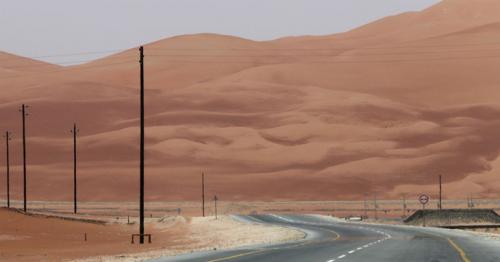Inspiring Kiwi to run ultramarathon across the Oman Desert for mental health
After her own troubled teenage years, Fran McEwen doesn't want to see other girls going through the same challenges. So she's running a race across a Middle Eastern desert to help them.
Sure, it's not everyone's cup of tea. But running an ultramarathon across the Oman Desert has been on Fran McEwen's bucket list for a while now.
You've got to agree, there's a hint of romance about a running race that follows the tracks of the ancient caravans, through "the most remote and untouched sands and the highest dunes" of the one the world's most beautiful deserts.
The odyssey begins at the Oasis of Bidiyah, crossing shifting sands that change from red to gold to white, and ends at the Arabian Sea, where McEwen plans to soak her tired feet.
It's just the 165km trek spread over six days – carrying your own equipment, sleeping bag and food all the way – that may tarnish its allure.
But it's a race that McEwen, a Kiwi trailblazer in getting girls active, is determined to complete next month. And she's not simply running this marathon so she can tick it off; she's doing it to raise money for the wellbeing of young women in Wellington.
McEwen, who almost bounces as she talks, was once what she calls a typical teenage girl statistic.
Growing up in Upper Hutt, in a "quintessential 1980s Kiwi childhood", McEwen was a runner who loved cross country. Her dad, Keith, was a television sports producer, and she'd often accompany him to big sports events.
"But then I dropped out of any physical activity and sports participation as a teenager," she says. "I had some pretty rough teenage years - with my mental health; I dropped out of school; moved out of home; got into all sorts of mischief."
But, at 25, when she wanted to lose weight, she began running again.
"I started to recognise it was having a big impact on my mental health, it was making me a lot better. So, I thought maybe I needed to do more of it," McEwen says. "Gradually it turned into a love of running.
"What it does for my mental health is just incredible."
McEwen has now run three ultramarathons, including the 65km distance in the Tarawera Ultra twice.
"Two of the things on my bucket list are to run through the desert and run a 100km race, so I'm going to try tick them both off at once," she says.

Fran McEwen wants people to sponsor a kilometre in her Oman ultra for young women's wellbeing.
Starting on November 15, the 165km Oman Desert Marathon is run in six stages over six consecutive days. Between each stage, the runners camp in the desert overnight. The longest stage is a 42km night marathon on day five.
It will be hot, between 30 and 40 degrees Celsius during the day, and McEwen's pack will be heavy - laden with all of her food for the week. On her shopping list are freeze-dried dinners, peanut butter slugs, waffles, dates and jet-plane lollies.
It's a serious race, attracting some of the world's top ultra runners in a field of around 100. Last year, Moroccan runner Aziza Raji – a pioneer in her country encouraging women's participation in sport - won the women's race in 23 hours and 33 minutes (the times on each stage are combined).
McEwen is also regarded as an innovator in helping young women get active. She founded the Shift Foundation, to improve the wellbeing of young women aged 12 to 20 in Wellington through breaking down barriers to participation.
After she dropped out of school at 16 with no qualifications, McEwen got a job shelving books in her local library. That evolved to working with children and young people in libraries. "That's really where my heart is, working with young people," she says.
She then moved into working in community centres, and then parks, sport and recreation programmes for local government - in Adelaide, the UK and finally back home at city councils in Wellington.
The more she worked with young women, the more she wanted to "turn around the statistics". Stats like teenage girls spending 90 minutes less each week than boys participating in sport or physical activity; and the marked drop in females aged 15-24 playing sport through being too busy, trouble getting to training or struggling to get motivated.
"As an adult, I did a BA in sociology at Open Polytechnic, and my final research paper was on the lived experiences of teenage girls in sport and physical activity. I did 12 in-depth interviews with young women from diverse backgrounds to try to understand what this drop-off is and why it's happening," McEwen says.
"When you uncover all that information, you can either sit on your hands and do nothing, or you can actually try to change something in the system that's not working. I was passionate about young women, so I thought 'OK, I need to do something, not just talk about it'.
"I wanted to start a different kind of programme that doesn't focus on one physical activity but uses whatever ways young women want to move and try to make those opportunities accessible. I'm a real advocate for improving the lives of young people through movement."
McEwen founded Shift in 2016. The idea behind the name: "To shift the system, to shift our thinking, to shift our bodies," she says. "We're the Shifterhood."
Since then, Shift has connected with more than 8700 young women in the Wellington region, delivering programmes through 27 schools. Many of the girls are from migrant or refugee backgrounds.
The original plan was to take Shift global, but McEwen now realises it's better to work with small groups of 12 young women than to "get 1000 participating in an outdoor dance class".
"We've now got a team of co-ordinators who do all the hard mahi on the ground - they have the real impact on young women's lives," says McEwen, who also works for Sport NZ as the young people strategy lead.
"But you need the people behind the scenes running across deserts to raise money. I see that as my role now, to keep it happening."
Her goal in Oman is to raise $5000 for Shift, by asking people to sponsor a kilometre for young women's wellbeing.
"It's been amazing. We've had young women who only have a babysitting job or a part-time job chipping in $5 or $10," she says.
Robyn Cockburn, chair of the Shift Foundation, isn't surprised by McEwen's desert running crusade.
"Fran is prepared to put her passion and her principles on the line. She's so committed to young women and their wellbeing that she's finding all sorts of creative ways of generating awareness and funding," Cockburn says.
"Yes, this one is way out there, but then, Fran is way out there too."
This story was originally published on Newsroom.co.nz and is republished with permission.
tag: ultramarathon , across , oman , desert , mental , health , inspiration , omanday
Share This Post






